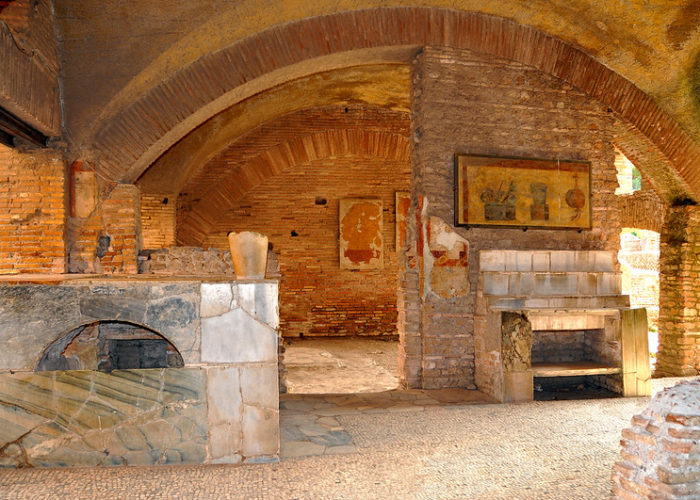This past weekend marked the beginning of the ancient Roman festival of Fornacalia, which was a nine-day festival ending on February 17. Though the name may sound X-rated, the festival was actually dedicated to bread and bread-baking. So is it just a coincidence that it sounds like “fornication”?
Yes. Fornacalia gets its name from the goddess Fornax, a personification of the oven. Celebrating the Fornacalia was a way of ensuring that the bread would not be burnt in the coming year. Roman families would come together to toast grain and sacrifice it to the goddess. “Fornax” is related to Latin “fornus” or “furnus” (“oven”), which is related to modern English “furnace” and modern French “four” (oven).
The etymology of “fornication” is from the Latin word “fornix,” meaning an arch or vault. In ancient Rome, prostitutes solicited customers under archways. So “fornix” became a euphemism for a brothel. Saying that someone was going “to the arch” meant that they were going to visit a prostitute.
Some other names for places also have their origins in architectural or physical features. The English word “bank” is related to the word for “bench,” referring to the table or counter of a money-changer. In French, this etymology is even clearer: “la banque” (bank)” and “le banc” (bench). This is an example of synecdoche, the figure of speech whereby the part is made to represent the whole — the arch represents the brothel, and the bench represents the place where money is changed.
Fornax versus fornix: what a difference one vowel can make. So here’s to the goddess Fornax and the enjoyment of warm fresh bread this winter!
Photo: A thermopolium (a sort of ancient fast food restaurant) in Ostia Antica. Photo credit: Dennis Jarvis via Flickr

